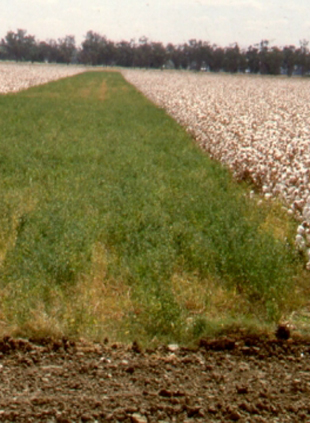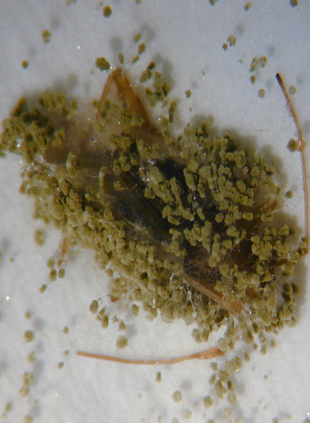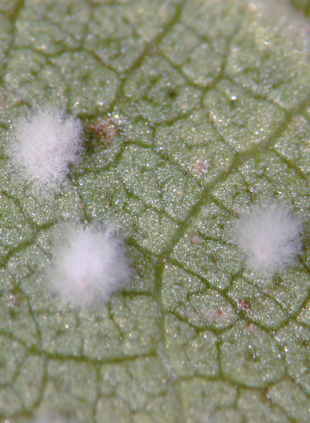Key research
Soils Programme
The Soils team undertakes research to protect and enhance the physical, chemical and biological fertility of soil resources that underpin the cotton farming systems. Focus research areas include quantifying the effects of crop rotations, tillage and stubble management on soil health, cotton productivity and water use economics of cotton farming systems in irrigated Vertisols.
Biopesticide and Integrated Pest Management
The biopesticide and integrated pest management (IPM) research focuses on the development of novel biopesticides and IPM strategies for use by the cotton industry. The biopesticides include entomopathogenic fungal insecticides and semio-chemicals derived from natural plant products.
Insecticide Resistance management
The insecticide resistance management research program focuses on the monitoring of insecticide resistance in major pests of broadacre crops particularly cotton and grains. This involves research in generating baseline susceptibility data, resistance monitoring and underlying genetics and biochemical mechanisms of resistance.
Cotton Pathology
NSW DPI supports the cotton industry by providing disease surveillance, diagnostic services, and world leading research to identify management options for growers to adopt to improve productivity and profitability. New knowledge developed during the life of this project combined with 30 years of NSW DPI survey data will allow the team to use their extensive expertise in cotton pathology to develop key components of decision matrices which will allow growers and managers to assess the risk of where and when to plant.
Cotton nutrition and irrigation management
The NSW DPI cropping systems unit have undertaken field experiments to examine optimum nutrition and irrigation management practices for the Northern NSW cotton industry. Investigating new management techniques and reducing excess nutrient lost from a farming system will improve the industry efficiency. The research is ensuring the industry is economically and environmentally sustainable, while leading to greater industry productivity.
Integrated farming systems
The NSW DPI northern cropping systems unit investigate the long term impact various farming management strategies have in northern NSW. Management approaches such as applying extra fertiliser, sowing more pulses, longer fallows periods through to double cropping systems are being investigated in the northern NSW environment.
Weeds Research
Upcoming weeds research will be based in an extensive collaboration between NSW DPI, CSU, QLD University and UNE into the Noogora Burr which continues to be a significant pest species. Work also continues into developing weed control thresholds.
Grains Agronomy
The scope of physiological and agronomic research encompasses summer and winter crops including canola, chickpeas, safflower, linseed, soybeans and mungbeans. Aims of the research include reducing production risk, improving crop production and reliability, and increasing crop profitability. The development of tactical agronomic advice is supported by physiological understanding of crop growth and development.
Water and Irrigation
Currently work on benchmarking water use efficiency and crop productivity in the Australian Cotton Industry is being carried out from ACRI.





